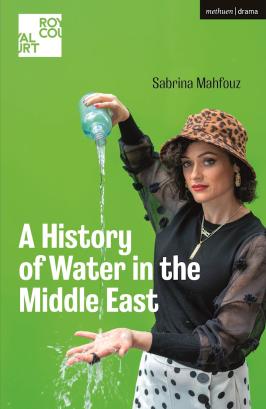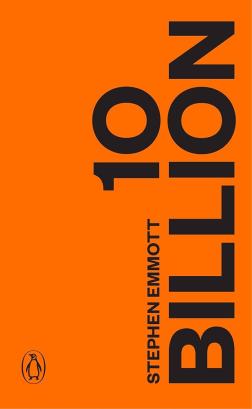
(English version below)
CLIC nodigt jullie graag uit voor de volgende WOLEC-sessie die plaatsvindt op dinsdag 10 december van 12:00 tot ten laatste 13:30 in C2.07a. Spreker Charlotte Manzella (Universiteit van Hamburg) zal een lezing geven met als titel: “I’m Talking About the Here and Now”: Self-Reflexivity, History and Climate Futures in the Lecture Performances 'A History of Water in the Middle East' and '10 Billion'.
Charlotte Manzella is onderzoeksassistent aan de Universiteit van Hamburg en werkt momenteel aan haar PhD project “Temporalities in Contemporary British Climate-Change Theatre”. Ze won de Henry Vaughan Berry Memorial Prize voor de beste BA-scriptie in Engelse studies aan de Universiteit van Hamburg en een Philological Faculty Alumni Award voor haar MA-scriptie aan de Albert-Ludwigs-Universität Freiburg. Haar onderzoeksinteresses omvatten Brits en Iers theater en drama uit de eenentwintigste eeuw, ecologie, temporaliteiten en genderstudies.
De voertaal is het Engels. Een broodjeslunch wordt voorzien. We vragen u om uw aanwezigheid ten laatste tegen 4 december via deze link te bevestigen. Voor meer informatie over WOLEC, klik hier.
Hopelijk tot dan!
*****

CLIC is excited to invite you to the next WOLEC session, taking place on Tuesday 10 December from 12:00 pm till 1:30 pm in room C2.07a. Charlotte Manzella (University of Hamburg) will give a lecture titled: “I’m Talking About the Here and Now”: Self-Reflexivity, History and Climate Futures in the Lecture Performances 'A History of Water in the Middle East' and '10 Billion'.
Charlotte Manzella is a Research Assistant at the University of Hamburg currently working on her PhD project “Temporalities in Contemporary British Climate-Change Theatre”. She won the Henry Vaughan Berry Memorial Prize for the best BA thesis in English studies at the University of Hamburg and a Philological Faculty Alumni Award for her MA thesis at the Albert-Ludwigs-Universität Freiburg. Her research interests include British and Irish twenty-first century theatre and drama, ecology, temporalities and gender studies.
The lecture will be held in English. A sandwich lunch will be provided. We ask you to confirm your presence via this link by 4 December. For more information about WOLEC, click here.
We hope to see you there!

Abstract
Sabrina Mahfouz’s A History of Water in the Middle East (Royal Court 2019) begins with a self-reflexive passage that establishes not the play’s peculiar form, “a lecture” (3, original emphasis) and thus implicitly links back to an earlier lecture performance at the Royal Court, Stephen Emmott’s Ten Billion (Royal Court 2012). Mahfouz’s play exemplifies what Lianna Mark calls a new autofictional mode that approaches political and social issues from a highly subjective perspective. I argue that it is precisely the self-reflexive use of the lecture enables this autofiction. Lecture performances allow a double vision of their subject by not only providing information but also revealing how the speaker structures the transmission process and thereby shapes that information (Frank). Lecture performances are, by nature, self-reflexive (Seita).
Especially when addressing the climate crisis, writer/performers utilise the metalevel to criticise political and social origins and responses. Mahfouz tells her own story alongside her community’s account of British imperial history, challenging supposedly objective, institutionalised versions of history. The play thus closely links imperial history to climate-driven water scarcity in the Middle East. This causal link departs from Emmott’s Ten Billion, which draws on global population increase to explain the overuse of vital resources, including water. Like Mahfouz’s, Emmott’s production relies heavily on establishing his identity. His standing in the scientific community lends institutional authority, and consequently credibility, to his performance lecture. However, his account of seemingly objective and universal climate data is undermined by its global perspective, that cannot account for local differences. Both productions use narrations of the past to project future climate scenarios. While Emmott simply concludes that existing measures will inevitably fail to address the climate crisis, Mahfouz deliberately leans into the self-reflexive form and her re-framing of history enables a much more nuanced approach to climate interventions.
